
The Communist International (Comintern), also known as the Third International, was an international organization founded in 1919 that advocated world communism, and which was led and controlled by the Communist Party of the Soviet Union. The Comintern resolved at its Second Congress in 1920 to "struggle by all available means, including armed force, for the overthrow of the international bourgeoisie and the creation of an international soviet republic as a transition stage to the complete abolition of the state". The Comintern was preceded by the dissolution of the Second International in 1916. Vladmir Lenin and Leon Trotsky were both honorary presidents of the Communist International.
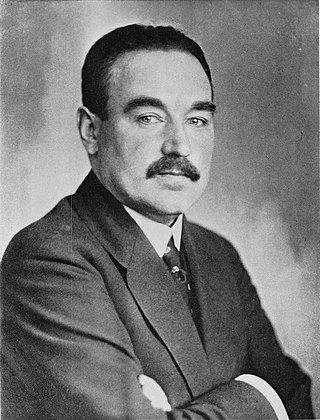
Alexander Gavrilovich Shliapnikov was a Russian communist revolutionary, metalworker, and trade union leader. He is best remembered as a memoirist of the October Revolution of 1917 and as the leader of the Workers' Opposition, one of the primary opposition movements inside the Russian Communist Party during the 1920s.

The Workers' Opposition was a faction of the Russian Communist Party that emerged in 1920 as a response to the perceived over-bureaucratisation that was occurring in Soviet Russia. They advocated the transfer of national economic management to trade unions. The group was led by Alexander Shlyapnikov, Sergei Medvedev, Alexandra Kollontai and Yuri Lutovinov. It officially existed until March 1921 when it was forced to dissolve by the 10th Congress of the Russian Communist Party (Bolsheviks), and semi-clandestinely until the subsequent 11th Congress in 1922, where its main exponents teetered dangerously on the verge of being purged for fractionist activity. In some aspects, it was close with the German council communist movement, although there is no information about direct contacts between these groups.
The history of the Communist Party of the Soviet Union was generally perceived as covering that of the Bolshevik faction of the Russian Social Democratic Labour Party from which it evolved. In 1912, the party formally split, and the predecessor to the Communist Party of the Soviet Union became a distinct entity. Its history since then can roughly be divided into the following periods:

The 10th Congress of the Russian Communist Party (Bolsheviks) was held during March 8–16, 1921 in Moscow, Russia. The congress dealt with the issues of the party opposition, the New Economic Policy, and the Kronstadt Rebellion, which started halfway through the Congress. The Congress was attended by 694 voting delegates and 296 non-voting delegates.
The 7th (extraordinary) Congress of the RSDLP(b) (Russian Social Democratic Labor Party), also known as the Extraordinary 7th Congress of the RCP(b) (Russian Communist Party (Bolsheviks)), was held between 6–8 March 1918. During this congress the Bolsheviks changed the name of the party to include the word "Communist".
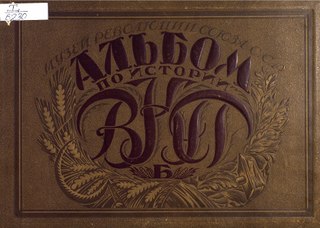
The Fourth (Unity) Congress of the Russian Social Democratic Labour Party took place in the (old) Folkets hus in Stockholm, Sweden, from 23 April to 8 May 1906. This Congress seen the formal, albeit short-living, reconciliation between the Bolshevik and Menshevik factions, hence the word "Unity" in the Congress' name.

The 17th Congress of the All-Union Communist Party (Bolsheviks) was held during 26 January – 10 February 1934. The congress was attended by 1,225 delegates with a casting vote and 736 delegates with a consultative vote, representing 1,872,488 party members and 935,298 candidate members.
The 11th Congress of the Communist Party of the Soviet Union was held during 27 March – 2 April 1922 in Moscow. The congress was attended by 522 with a casting vote alongside 165 with consultative vote, and elected the 11th Central Committee.
The 12th Congress of the Russian Communist Party (Bolsheviks) was held during 17–25 April 1923 in Moscow. The congress elected the 12th Central Committee. It was attended by 408 delegates with deciding votes and 417 with consultative votes, representing 386,000 party members. This was the last congress of the Russian Communist Party (Bolsheviks) (RCP(b) during Vladimir Lenin's leadership, though Lenin was unable to attend due to illness.
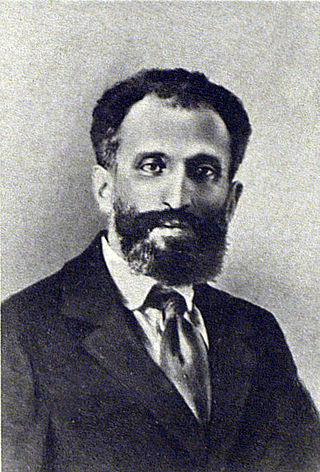
Osip Aaronovitch Piatnitsky, was a Russian revolutionary and Soviet politician. Piatnitsky is best remembered as head of the International Department of the Communist International during the 1920s and early 1930s, a position which made him one of the leading public faces of the international communist movement.
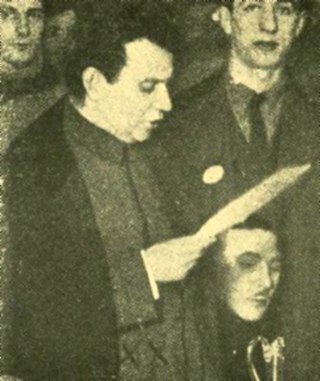
The Congress of the Peoples of the East was a multinational conference held in September 1920 by the Communist International in Baku, Azerbaijan. The congress was attended by nearly 1,900 delegates from across Asia and Europe and marked a commitment by the Comintern to support revolutionary nationalist movements in the colonial "East" in addition to the traditional radical labour movement of Europe, North America, and Australasia. Although attended by delegates representing more than two dozen ethnic entities of the Middle and Far East, the Baku Congress was dominated by the lengthy speeches of leaders from the Russian Communist Party (RCP), including: Grigory Zinoviev, Karl Radek, Mikhail Pavlovich, and Anatoly Skachko. Non-RCP delegates delivering major reports included Hungarian revolutionary Béla Kun and Turkish feminist Naciye Hanim.
The 8th Congress of the Russian Communist Party (b) was held in Moscow 18–-23 March 1919. The Congress was attended by 301 voting delegates who represented 313,766 Party members. A further 102 delegates attended with speaking rights, but no vote. It elected the 8th Central Committee.

The 2nd World Congress of the Communist International was a gathering of approximately 220 voting and non-voting representatives of communist and revolutionary socialist political parties from around the world, held in Petrograd and Moscow from July 19 to August 7, 1920. The 2nd Congress is best remembered for formulating and implementing the 21 Conditions for membership in the Communist International.
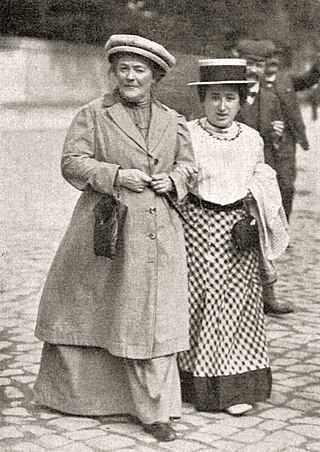
The Communist Women's International was launched as an autonomous offshoot of the Communist International in April 1920 for the purpose of advancing communist ideas among women. The Communist Women's International was intended to play the same role for the international women's movement that the Red Peasant International played for poor agrarians and the Red International of Labor Unions played for the international labor movement.

The All-Russian Congress of Soviets evolved from 1917 to become the supreme governing body of the Russian Soviet Federative Socialist Republic from 1918 until 1936, effectively. The 1918 Constitution of the Russian SFSR mandated that Congress shall convene at least twice a year, with the duties of defining the principles of the Soviet Constitution and ratifying peace treaties. The October Revolution ousted the provisional government of 1917, making the Congress of Soviets the sole, and supreme governing body. This Congress was not the same as the Congress of Soviets of the Soviet Union which governed the whole Soviet Union after its creation in 1922.
On the Cult of Personality and Its Consequences, popularly known as the Secret Speech, was a report by Soviet leader Nikita Khrushchev, First Secretary of the Communist Party of the Soviet Union, made to the 20th Congress of the Communist Party of the Soviet Union on 25 February 1956. Khrushchev's speech was sharply critical of the rule of the deceased General Secretary and Premier Joseph Stalin, particularly with respect to the purges which had especially marked the last years of the 1930s. Khrushchev charged Stalin with having fostered a leadership cult of personality despite ostensibly maintaining support for the ideals of communism. The speech was leaked to the West by the Israeli intelligence agency Shin Bet, which received it from the Polish-Jewish journalist Wiktor Grajewski.
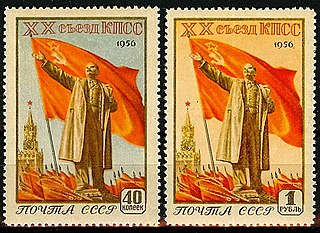
The 20th Congress of the Communist Party of the Soviet Union was held during the period 14–25 February 1956. It is known especially for First Secretary Nikita Khrushchev's "Secret Speech", which denounced the personality cult and dictatorship of Joseph Stalin.
Fourth All-Ukrainian Congress of Soviets was a congress of Soviets of workers, peasants, and Red-army-men deputies, that took place in Kharkiv on May 16–20, 1920. Many of the topics discussed at the congress closely corresponded to the agenda of the Fourth Conference of the Communist Party of Ukraine, that took place two months earlier in March 1920.
The Ninth All-Ukrainian Congress of Soviets was a congress of Soviets (councils) of workers, peasants, Red-army-men deputies that took place in Kharkiv on May 3 - 10, 1925.












